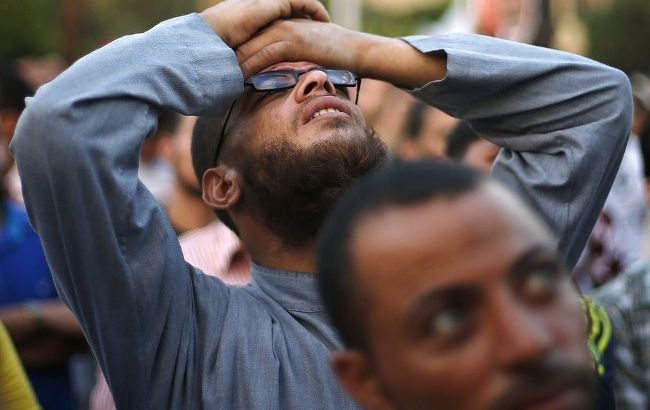
Egypt: The future of the Muslim Brotherhood
Following the ousting of President Mohamed Morsi, we discuss the future of political Islam in the region.
It took the Muslim Brotherhood eight decades to come into power in Egypt. When it finally did, President Mohamed Morsi lost it in one year – overthrown after days of protests. And now Egypt’s military leaders are back.
Morsi, the country’s first democratically elected president, was overthrown in a military coup on Wednesday. It is a spectacular fall for the Muslim Brotherhood, a movement that took power in Egypt only a year ago, after decades in the shadows, only to have it pulled from them so dramatically.
The Muslim Brotherhood was a banned for most of its 83 years of existence since Hassan Al-Banna established the movement in the Egyptian city of Ismailia in 1928.
And less than 24 hours after the army stepped in, an interim leader was sworn in.
I think the constitutional coup that Morsi had on 22nd November where he gave himself unprecedented powers, a move that Mubarak never even dared to do, was a coup in the first place .... I really do not think that the country would have lasted another year under Morsi ... and it ended in probably the safest way it could have.
The new man at the top, Adly Mansour, is one of Egypt’s longest serving judges.
Mansour takes over after the military said that Morsi had failed to meet what it said were the demands of the Egyptian people.
Although Morsi acknowledged that he had made some mistakes, five months into his leadership, he decreed his presidency be given sweeping new powers.
But the public backlash led to an annulment a short time later.
Morsi was accused of cronyism, allocating important government jobs to the Muslim Brotherhood and its supporters. He was criticised for failing to restore public safety, and not attending to the rising crime rate.
But perhaps his biggest mistake was failing to fix the economy.
It was already in crisis when he joined the presidential race, But Morsi’s focus remained largely on politics.
Some people have, perhaps prematurely, called this the end of the Muslim Brotherhood’s project in Egypt.
That may have some regional politicians inspired by Islam worried.
In Tunisia, the Islamic Ennahda government has appointed a number of ministers from the opposition. But the divide between secularists and conservatives has grown wider after the revolution.
In Libya, where the country is still ruled by an interim government, Islamists have not made the political gains seen elsewhere in the Middle East.
But in Syria, people inspired by Islam form a major part of the opposition. Many say they would play a central role in any government that replaces President Bashar al-Assad.
And in Morocco, a government that favours Islam in politics that came to power after the Arab Spring is still struggling to deliver on its promises.
So what lessons can be learned and what does the future hold for Egypt? And what message does this send to political groups across the Arab region that are inspired by Islam?
To discuss this, Inside Story, with presenter Hazem Sika, is joined by guests: Hisham Kassem, a journalist and publisher; Abdelwahab El-Affendi, a professor at the University of Westminster and a specialist on Islam and democracy; and Fawaz Gerges, the director of the Middle East Centre at the London School of Economics and Political Science.
|
“The Islamists brand has been damaged for good … throughout of the Middle East what you are going to see is really a backlash… The emperor is naked. They have no original ideas … Mohamed Morsi pursued similar policies to that of Mubarak politically on foreign policy and economically …. Whether you are talking about Jordan… Syria… Morocco. More and more Arabs are going to take a second look at this particular huge religious and social movement.” – Fawaz Gerges, director of the Middle East Centre at the London School of Economics and Political Science |